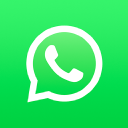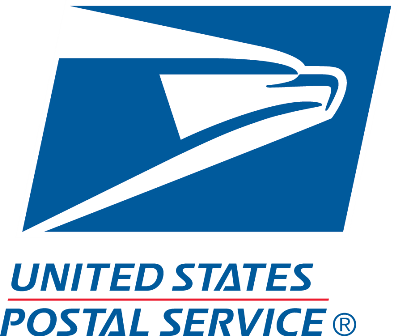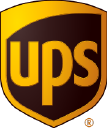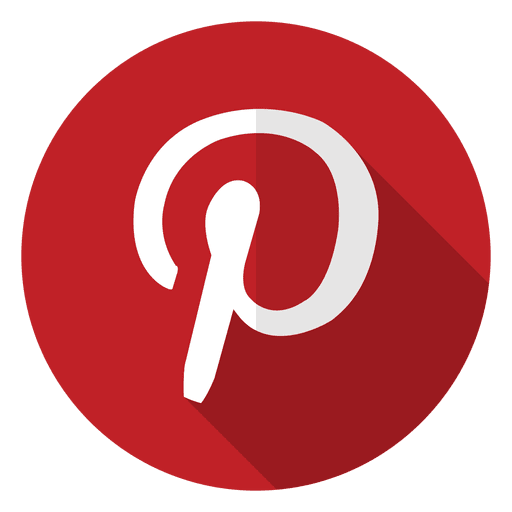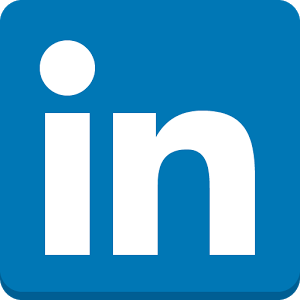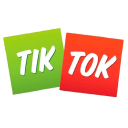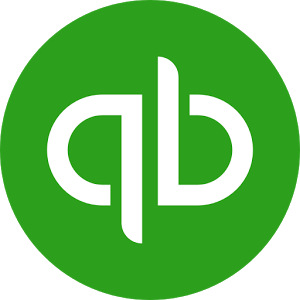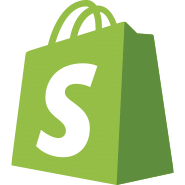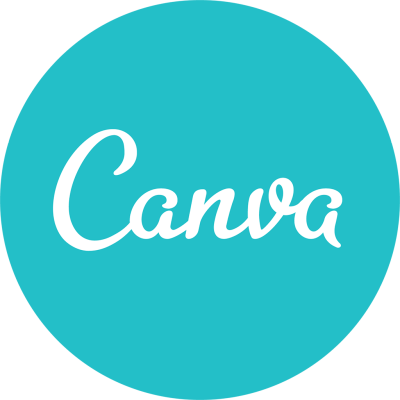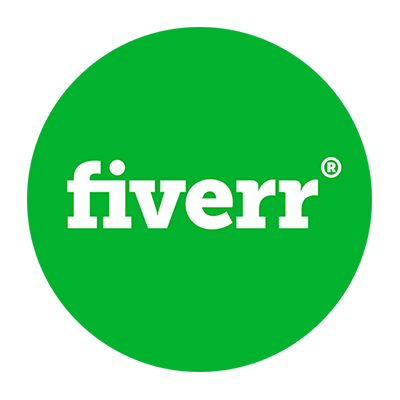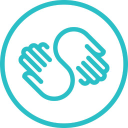How We Created A $10K/Month Modular Customizable Bong
Hello! Who are you and what business did you start?
Hey guys, I’m Gordon Loi the founder of VITAE Glass, a modular bong company that allows you to build and customize your unique bongs. You can think of us as the LEGO of bongs, with interchangeable pieces and endless combination possibilities. The majority of bongs have mostly been large, single pieces of glass that were fragile and difficult to clean. We took this age-old design and re-engineered it to be modular, so that it’s now easier to clean, transport and be replaceable if you ever break apart.
We launched on April 20 of 2019 and currently serve the growing legal cannabis market in the US and Canada. We have seen demand from all around the world so we’re aiming to have distribution centers in Europe and Australia within the coming 5 years.
Fun fact about our company. Ever since we officially launched, we have been doing everything remotely. Martin, our co-founder is in San Francisco and me in Hong Kong. Due to some unfortunate immigration issues right before the launch, I was denied entry into the U.S. and have been stuck abroad ever since. I had 2 choices at the time. One was to throw in the towel and start something new given my current circumstances, however, that was not an option I was willing to take. The second option was to keep going even though I will not be back in the US to run things for the coming 2-3 years. Needless to say, I chose option 2.
Although the 2 key members of the team are thousands of miles apart, we continue to run the business remotely and averaging $10,000/month for our first year, and on track to double that for this year.


What's your backstory and how did you come up with the idea?
I’m of Chinese descent who grew up in an entrepreneurial family in Cape Town, South Africa. My dad, who had immigrated to South Africa in the ’80s, started his own wholesale business there, which got me familiar with importing products from China at a young age. I spent most of my school holidays either at the shop or unloading containers into our warehouses. It was a very brick and mortar operation and the garage at home often converted into a temporary warehouse. We would have 18 wheelers roll up into the neighborhood and unload a 40ft container into the garage. It’s a sight you wouldn’t expect too often in a residential area.
Always have enough money in the bank. Lack of funds can slow you down more than you think. Always ask for double of what you need because what you need is never enough.
I grew up in a very DIY environment and loved customizing and building things. I loved inventing things, modifying computers, cars, building custom speaker boxes, and later on remodeling homes. I guess I must have brought the love for building things with me into building bongs too.
After reading the book Rich dad poor dad in high school, it was ingrained in me to find a way to create a source of passive income and escape from the rat race. During high school and college, I tried my hand at a few affiliate marketing businesses and also started a real estate company in my mid 20’s. Neither of which were ever profitable but gave me the perseverance that I needed to keep trying even after multiple failures.
When they say follow your passion, this couldn't be any more true for me. Medical cannabis has always been an interest of mine and I knew I wanted to be involved but just waited for the right timing and opportunity. The initial idea came to me in 2015 when I was cleaning my bong under the tiny bathroom sink. The bong was too big to properly get a good rinse and I had to resort to using the shower, which is when this idea came to me. You could technically call this one of those magical “aha” made moments in the shower.
I immediately drew down the idea onto 7 pages of printer paper, but the timing did not feel right back then. I was still running my real estate business and was uncertain whether or not California would legalize in the upcoming 2016 vote. Unsure of the future, I put these plans into hibernation for over 2 years. It was in early 2017 when the idea got reignited during a conversation with a smoking buddy of mine. California had just passed adult recreational use and he recently quit his day job, which left him with some free time on his hands. Together we went about making our prototypes and MVP, we knew that this industry was ready for some extreme growth, and hopefully full legalization in the US one day.
12 months later, our MVP was ready. I would test this at our local smoke lounges and dispensaries to get as much feedback as we could. These smoke lounges doubled as my office during the day as well as a testing ground ripe with cannabis users. We would always be the highlight of every party when we whipped out a 5ft bong from a Nike shoe box. Everyone was always amazed by it and loved the function of it too, oftentimes expressing interest in buying one... This is when I knew I had to take this idea and run with it.
Take us through the process of designing, prototyping, and manufacturing your first product.
Our current product consists of borosilicate glass pieces connected via a plastic and wood ring. This was not the case when we started prototyping. While researching the industry, I was told that quartz was the way to go since it is a stronger material and more sought after than regular borosilicate glass. Not knowing too much at the time, I sourced a quartz factory in China to make quartz on quartz connection. I was soon to find out that this route was a big no-no.
Quartz cost considerably more to produce (2-3 times more) and the quartz on quartz thread faced multiple issues while connecting. Firstly it did not form a waterproof seal and was highly susceptible to chipping, which resulted in a very short lifespan. Our very first prototype had an open bottom so you couldn’t even add water to it, and the mouthpiece opening was gigantic, too big for any human lips. To this day, it has never been used but serves as a start to something beautiful.

Next, we utilized a 3D printer to play around with a glass on a plastic connection instead of a direct glass on glass connection.

This turned out to fare a lot better, so I sourced some borosilicate manufacturers in China to make more samples for me. We had a multitude of design samples with different colors and one even had an octopus as the mouthpiece.

These were the initial demo pieces that I used to validate my idea, many of them are not yet available since they were made by another manufacturer at the time.

I was lucky to be referred to my current manufacturer through US tubes, a well-established bong brand in the glass world. Their quality is the best I’ve seen so far, however, they are smaller in size than other manufacturers in China, but we’re more open to working with us on a smaller scale, and hopefully, we can grow together.
One of the difficulties we faced was making matching threads on the glass and the plastic. We had to make 4-5 different threads to get to where we are and we’re still not done (We’re in the process of a version 2 thread as we speak). The thread on the glass was extremely difficult to keep consistent as they are all hand-pressed and not made in a mold.
Our rings were made using a CNC machine which also resulted in tiny size differences that caused continuing issues. This resulted in the connections not being straight and the rings either being too tight or too loose. As we move towards our version 2, we now have the funds for the more expensive plastic mold which should give us a more consistent output than the CNC machines.
The biggest difference in making modular pieces as compared to a single piece is making sure every piece is straight and true. Something I learned about product development the hard way is that the more parts you have, the more problems you’ll face. By having multiple connection points on a bong, any piece that is off by even 1 degree, could result in your top pieces slanting off to the side. Currently, we only have about a 70% pass rate on the glass and it takes a considerable amount of time checking every piece manually. This limits our ability to scale which we hope our version 2 thread would resolve for us.
Describe the process of launching the business.
In August of 2018, we had a small team of 7 people who were ready to take on this journey together. Unfortunately due to my immigration issues and without the ability to get back into the US, this team of 7 shrunk to just 2.
A tip to get reviews is by offering something in return for the review. We offer a small gift which we mail out using a regular envelope and postage that cost us about $1.5 total.
Without the necessary hands, the two of us had to wear the multiple hats of all entrepreneurs. We did almost everything ourselves, from the website to social media, SEO, and even product video. Neither of us had any experience in e-commerce so it was quite the learning curve for both of us. Martin had a finance background in Wall Street and I’m in real estate. Both of which have very little to do with product development or e-commerce.
We initially wanted to launch on a major crowdfunding platform such as Indiegogo or Kickstarter but soon found out that our product was not eligible to be listed, since it is considered drug paraphernalia and illegal under the current US laws. My plans for fundraising in the cannabis-friendly Bay Area also took a turn, because I would not be able to present the pitches in person. So, we had to do what we could and bootstrapped from here on out. We managed to gather $30,000 from friends and family to get the launch-ready. We started with just 200 sets of glass, 500 sets of packaging boxes, and not much left over for advertising.
The first batch of glass arrived around March of 2019 and we put the site live on April 20 (AKA 420, which is a big cannabis holiday). We did not host a launch party nor did any press releases for our launch. We relied solely on our 2000 followers on Instagram and a handful of micro-influencers to drive traffic to our site. It was not the best of launches and rather rushed with little hype built around it. We spent more time building the website than actually promoting the product at the time.
Unsurprisingly, we only had 1 sale on the first day, but it was the first actual proof of concept and I couldn’t be happier. Someone paid for a product that we created and that is the best feeling you could ever receive as an entrepreneur. However, the celebrations soon ended. Sales in the following days were non-existent.
We realized that building a set required 6-7 clicks whereas pre-built sets only took 1 click. I spent a month tweaking the site for a better UX (User Experience) and added pre-built sets as the main CTA (Call to action) button instead of building it yourself. 30 days after our first sale, we got our second sale thanks to a large Youtube influencer and a better faster checkout process. He offered us an introductory price of just $300 for the video but it brought in our first $3,000 in sales and continues to bring in sales to this day.
From this launch, we realized how important a user-friendly site is and even though our launch was not a massive success, it is better to have started than not at all. We could have kept spending time on “perfecting” the site but wouldn’t find out how bad it would perform until it’s live.
The biggest lesson learned here is to be patient and keep persisting. With 1 month in between sales, a super slow start by any measures with bad marketing around it, but given enough time, things will get better. We are almost doubling our sales every quarter now with very little to no money spent on advertising.
Since launch, what has worked to attract and retain customers?
Marketing has always been very challenging for us especially due to the industry that we are in. We are not allowed to advertise on Google, Facebook, and Youtube, which leaves us with very little marketing options left over.
As we gradually introduce new pieces every quarter, we see a majority of these coming from existing customers via our email marketing campaigns. Those who have tried and already love our products are the ones who are most likely to come back for more.
The two major platforms we use to promote our brand are Instagram and Youtube. Instagram brings awareness for our brand but conversions happen slowly over time as more and more people eventually see our product. Do not expect immediate sales from here though. It is great for exposure and highly recommended if you’re building a brand.
Our best ROA (Return on ad spend) platform so far is our Youtube collaborations with influencers in our industry. We often see an immediate spike in sales from this platform and recoup the cost relatively soon. Although this is short-lived and can get pretty expensive especially with larger Youtubers costing upwards of $2000 - 4000 per video. We have yet to work with the largest creators, but am confident that it should yield positive returns.
Sites like dudeiwantthat.com or thisiswhyimbroke.com have the best increase in traffic for a relatively low cost ($250 - $500). I would highly recommend sites like these if you have a physical product. We got some published articles in Forbes, Hightimes, and Dope magazine, however, the traffic was far less than the paid sites. They have a big name, but not necessarily a high CTR (Click through ratio) compared to sites that list gadgets and gifts.
Since the launch, we are starting to see a steady increase in traffic over time. This is primarily due to our SEO from blogs kicking in and word of mouth from existing customers. Every market is different so I would suggest testing and trying out different platforms to see what works best for your market. Growth can be slow, but as long as it is positive growth, you’re going in the right direction, just be patient.

How are you doing today and what does the future look like?
Just as we pass our 12 months, sales are getting better with the word of mouth and reviews working in our favor. We have about 6 more months to break even and expect to have a better budget for advertising spend once we have paid off all our startup loans.
We have 7000-8000 monthly visitors to the site with an average conversion rate of 0.6 % which is below the industry standard. Our product is considered a high ticket item and increasing this conversion rate has been the most challenging. If we could increase this to just 1%, we would see a 40% jump in sales, and that would be a massive boost for us.
Right now, Martin is in San Francisco shipping out packages while I am abroad managing R&D and production. 100% of our sales come from our website since we are prohibited from selling and advertising on Instagram, Facebook, or Amazon. The 2 man team works well for us at the moment and I expect to bring more people on once I am officially back in the US.
Our greatest problem that we face now is a shortage of inventory. We had about 90 days combined where every item in the store was on pre-order. Keeping up with the demand has been challenging, especially with our small manufacturer and the global pandemic closing down factories for over 2 months. Our manufacturer is hiring more people now to handle the extra workload, so I do expect this issue will be solved shortly.
Our short term goal is to perfect our version 2 so that scaling up production will be easier, making it possible to start wholesaling and getting it into actual smoke shops and dispensaries.
With an increasing demand from customers in Europe and Australia, I am looking to expand there within the coming 5 years.
As our volume increases, we will be looking into the sea shipping the glass in. Currently, it’s all air-shipped due to time sensitivity and the lower risk of it being seized by customs. Customs consider our product illegal and can seize it if they choose to, which can be very bad for us. By air shipping, we are adding almost 60% to the cost of our products, but it is the safest method for now.
I hope that legalization will pass in the coming years so that we can utilize more marketing channels and sales platforms to list our products on. This would also make importing the glass by sea legal and save a huge amount for us.

Through starting the business, have you learned anything particularly helpful or advantageous?
No matter how terrible things seem, they do happen for a reason. Such as the unfortunate event of my immigration, there is a silver lining to it though. I can spend more time in our factories and fine-tune our product faster. I am sure this would have taken double or even triple the time if I was in the US.
Even though the Covid-19 pandemic has increased our shipping cost and delayed production, our demand has skyrocketed. This too played out to work in our favor.
Some poor decisions made early on are hiring or working with inexperienced people and not trusting your gut feel. We spent $5000 developing some code for a custom builder on the site. I knew I should have gone with my gut feeling when they wouldn't even start before the first check got cleared, and they would delay stages of the project until they get every installment on time. Needless to say, the code was only half-finished and money was wasted by using the wrong people.
The lesson is to trust your gut feeling and work with the right individuals. They might cost a little more, but you do get what you pay for, at least most of the time.
What platform/tools do you use for your business?
We use Shopify to host our site and so far that has worked out pretty well. The only downside is the customization of the site would require someone who has a little knowledge in coding to make things easier, otherwise it serves most of our purposes. Make sure to add apps such as exit popups, countdown timers, and live chat on your site. These will come in handy over time.
For reviews, we use stamped.io and klaviyo for our email marketing. Both of these work very well and there are no complaints about these yet. A tip to get reviews is by offering something in return for the review. We offer a small gift which we mail out using a regular envelope and postage that cost us about $1.5 total. We have received over 250 reviews out of 500 customers with this tactic and 99% of giving us a 5-star rating.
If you’re limited on manpower and have a tight budget, I would recommend using freelancers from sites such as Fiverr and Upwork. These tend to be a hit or miss depending on how much you’re willing to pay per job and whether or not you find the right person. In the end, it is better to have it done rather than spending your valuable time trying to do everything by yourself.
What have been the most influential books, podcasts, or other resources?
I wouldn’t say there is one particular book or podcast that is a must-read, but more so a combination of books, podcasts, and motivational videos. Every piece has its learning lessons so the more you take it the better it is for yourself.
One new habit that I recently picked up is playing Youtube motivational videos while at the gym. Try searching “workout motivation” and you’ll find some really good ones. It helps get the mindset back on track and is a good reminder that you’re meant for greatness, but more importantly to never give up, no matter how tough things get.
Winners never quit and quitters never win.
One book that I can relate most to is Shoe Dog the story of Nike by Phil Knight. After reading it, it reminded me of how similar our journeys are. We both ventured into foreign countries to get prototypes done, we’re constantly improving on our products and also always running out of cash by reinvesting it back into the company. You would imagine this global brand had a great start but the reality is, we all started from the same point which is from zero.
Advice for other entrepreneurs who want to get started or are just starting out?
Be patient and never give up. There will be times where you question yourself over and over again on whether it’s worth it or not, but deep down you know it is.
Always have enough money in the bank. Lack of funds can slow you down more than you think. Always ask for double of what you need because what you need is never enough.
Work with the right people. Working with inexperienced people will not only slow you down but end up costing you more than what it would have been than hiring the more expensive but experienced people.
And lastly, keep a clear and positive mindset. Even though we’re in the middle of a global pandemic, it is critical to keep your eye on the ball. Meditating daily has helped me tremendously in staying focused amongst all the chaos in the world.
Are you looking to hire for certain positions right now?
We are looking to hire part-time freelancers that can produce video/photo content for us and a commission-based sales rep to expand with wholesaling.
Where can we go to learn more?
- Website
- If you have any questions, I can be reached directly at Gordon@vitaeglass.com
If you have any questions or comments, drop a comment below!

Download the report and join our email newsletter packed with business ideas and money-making opportunities, backed by real-life case studies.

Download the report and join our email newsletter packed with business ideas and money-making opportunities, backed by real-life case studies.

Download the report and join our email newsletter packed with business ideas and money-making opportunities, backed by real-life case studies.

Download the report and join our email newsletter packed with business ideas and money-making opportunities, backed by real-life case studies.

Download the report and join our email newsletter packed with business ideas and money-making opportunities, backed by real-life case studies.

Download the report and join our email newsletter packed with business ideas and money-making opportunities, backed by real-life case studies.

Download the report and join our email newsletter packed with business ideas and money-making opportunities, backed by real-life case studies.

Download the report and join our email newsletter packed with business ideas and money-making opportunities, backed by real-life case studies.



